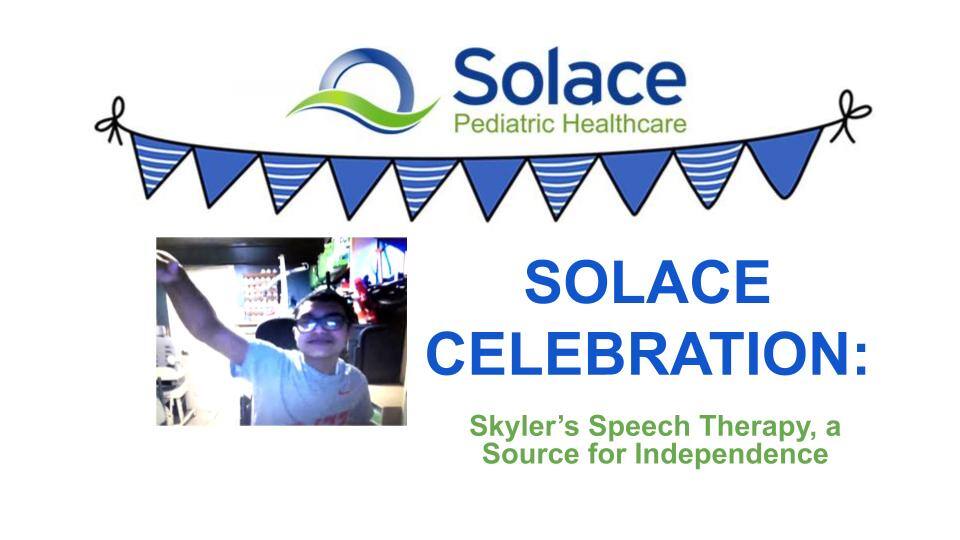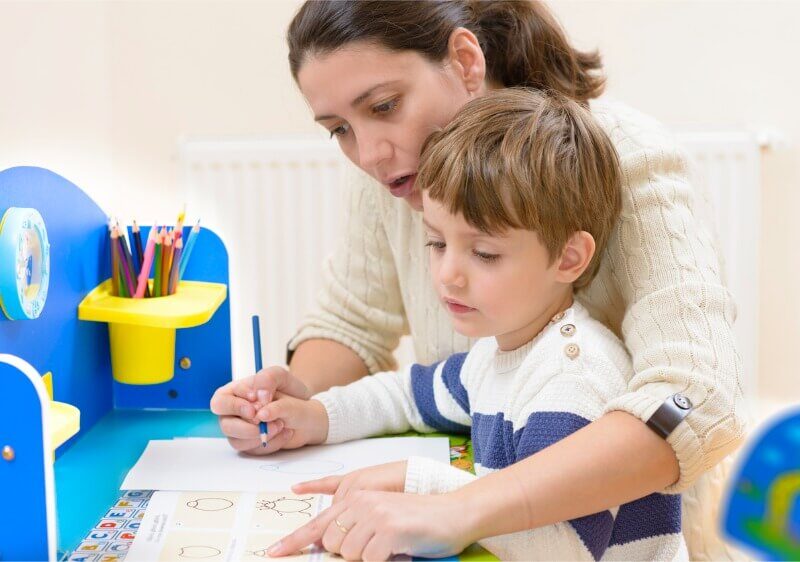It is our pleasure to work with determined and motivated kids who have the enthusiasm and support to push through challenges, try new skills, and reach for the confidence that leads to their fullest potential. As therapists, we participate in and witness the incremental progress made, and we love to share one story after another to celebrate and encourage these successes! Last time, you met Samuel who is making great progress in his Telehealth speech therapy work with Care Options for Kids. This week, we would like to introduce you to Skyler, who is also working hard on his own speech therapy and experiencing a significant amount of independence as he improves.
Skyler is a delightful 12-year-old, making incredible progress in his telemedicine speech therapy sessions. He is becoming more independent in daily tasks which has been an ongoing goal for him. In this independence, he has learned to access the technology to sign in and out of his own telemedicine sessions. Additionally, he has interacted with learning tasks, and learned to accept challenges and rewards from the therapist. Skyler’s attention and comprehension are improving in that he must follow directions and do more for himself remotely without relying on the helping hand of the therapist who is sitting directly by his side. As an added bonus, his reading fluency goal is being met because he is so persistent in using his learned reading strategies during therapy and at home. Skyler is so motivated and moving in the right direction with his therapy goals and seeing that enthusiasm blossom into more and more independence for him has been very encouraging!
The benefit of building independence when practicing speech therapy
Speaking challenges are very difficult for children because they can take away a child’s means to control basic outcomes in their life. The ability to communicate is a key aspect of engaging in the world that we live in and sets the stage for independence, exploration, and for understanding the culture and people around us. It is not uncommon for kids who have difficulty with speech to become less confident in these explorations, and show a fear or unwillingness to take relational risks with the people and day-to-day world surrounding them.
Integrating the support of speech therapy for children exhibiting a delay in this developmental area is critical. Speech therapy sets the stage to build confidence for a child to communicate and connect to their needs and wants all by themselves instead of only through a caretaker. Building up the confidence and willingness to take risks can be just as important to a child’s development in this area as learning the actual speaking skills themselves. This is why speech-language pathologists are often spending time encouraging just as much as they are instructing and practicing skills with a child. This creates a safe place for the child to take these confidence building risks in their therapy and reinforces that independence is something to be desired versus feared.
How a telemedicine environment encourages even more independence
When a therapist or parent is sitting right next to a child during therapy it can create a safe and comfortable cushion for the child to ask for help even in times when he or she can do an exercise by themselves. Sometimes, with the right client, of the appropriate age, Telehealth therapy can add a dynamic where the child experiences enough emotional and physical space to take more personal responsibility for participating in therapy. Similar to Skylar, learning to sign in and out of the technology and actually doing logistical things, just to be able to participate in his own speech therapy, was a moment where telemedicine cultivated even more growth.
These “real-life” action moments where a child can practice turning on the path to participate in a moment are priceless for underdeveloped children. Practice does ultimately help kids learn how to repeat actions, but when they are learning an activity that leads to being involved in a different activity, the reasons for the consecutive steps make sense and opens doors to even more interactions. These experiences can really be memorable for a child teaching them that the end prize was worth the starting effort. These are the kind of building block experiences that build independence in a child and success it is such a good feeling that we always want to provide to kids in therapeutic settings. If you believe home-based Telehealth speech therapy could be helpful for your child, please feel free to contact us to learn more information about how Care Options for Kids has experience developing ideal action plans for any child.






